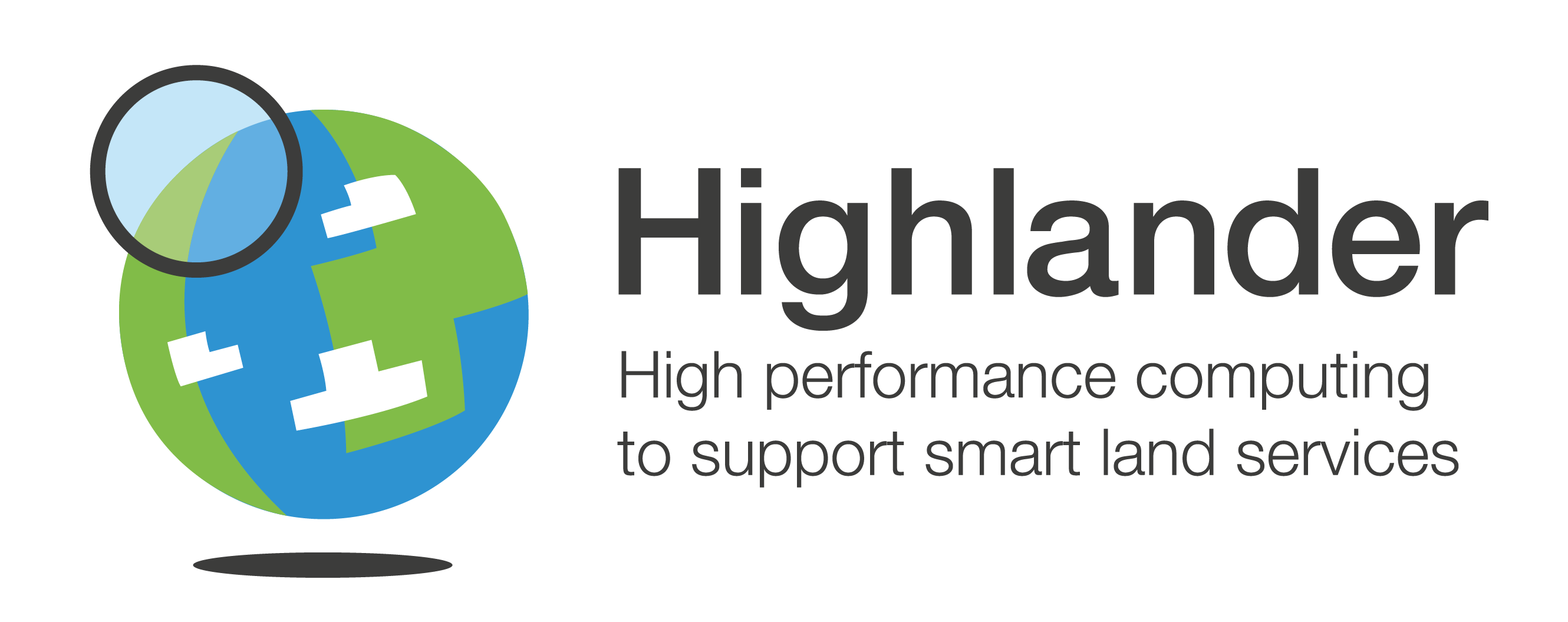HIGHLANDER
- /
- Projects
- /
- Closed projects
- /
- HIGHLANDER

Through the use of High Performance Computing, Highlander will make it possible to process data for generating climate forecasts and reducing the risks associated with climate change, for a more intelligent and sustainable management of natural resources and the territory.
General notes
Seeing climate change as a new opportunity is the challenge that Highlander has taken on and about to win. Highlander project strives for a smarter management of lands, studying new sectors enabled by emerging technologies interested in reducing risks on human health, agriculture and livestock production. Through the use of High Performance Computing, Highlander project aims at reducing risks associated with climate change by processing data and obtaining accurate climate forecasts, achieving the goal of having a more intelligent, sustainable management of natural resources and of the territory.
Thanks to data processing, Highlander will be fully exploiting new technologies to generate, manage, host and distribute organised sets of data, integrating with already existing geospatial and non-geospatial datasets. Designing and implementing a continuously updated last generation multi-thematic framework of highly detailed and harmonised data, indicators and tools ranging from remote and in-site monitoring, analytical tools and numerical models to machine learning algorithms.
The data processing activity will ensure new and already existing datasets are accessible to multiple users as well as HPC-based tools and services, and the long-term functionality of the created services thanks to the involvement of real users during the project. Facilitating the mainstream of information itself into decisions, strategies and plans on different interacting scales and sectors.
Objectives:
Highlander project will be able to develop new cutting-edge applications and services for:
-
- a smarter management of agriculture – irrigation schedules, fertiliser inputs, water cycle and sustainability of competing uses (hydropower, domestic, agricultural, ecological) – supporting planning and decision-making when considering territorial resources and systems owing to short-term forecasts and medium-term climate projections, including extreme events and related climate risks;
-
- animal welfare, environmental management of nature parks and forest fire predictions and controls, integrating climate data, satellite observations and Internet of Things data in order to support ecosystem assessment and management such as environmental management of natural parks.
Call: Topic: Public Open Data – Type of Action: CEF-IA
Start date: 01/10/2019
End date: 30/09/2022
Duration in months: 36
External links: Follow the external link
Partners: The project is coordinated by CINECA, and involves the following organisations: ARPAE SIMC, ARPAP, ART-ER, CIA, CMCC, DEDAGROUP, ECMWF, Fondazione Edmund Mach and the Department for innovation in biological, agro-food and forest systems (DIBAF) of Università della Tuscia.
Contacts: Gabriella Scipione
E-mails: [email protected]